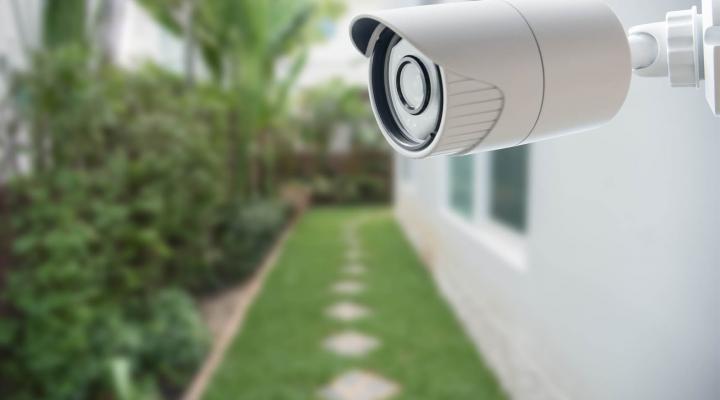
Protecting your property is of primary concern for all homeowners, but this is particularly true if you own a second property in a second country, such as a holiday home in Spain. You want to ensure that your home is always safe and secure, whether you are residing in it or not.
There are many different ways in which you can protect your Spanish property. These include ensuring that your doors and windows are properly secured, hiring a security patrol team if you’re away for long periods of time and, the focus of this piece, installing security cameras. But installing security cameras in your Spanish property is not as straightforward as you might think. Here’s everything you need to know:
What Are the Legal Requirements for Installing Home Security Cameras in Spain?
It is perfectly legal to install a security camera in your home in Spain, but there are caveats to this. That’s because there are many legal regulations and frameworks that apply to security camera installation in the country. It is important to understand what these regulations are, and to ensure that you abide by them, so that your camera installation remains on the right side of the law. These include:
- Registering your security camera with the Spanish Agency for Data Protection (AEPD) before it is turned on and any videos or images are captured.
- You cannot share access to any images recorded on your security cameras. These should be accessible only to the camera owner. If your recordings can be accessed only then they should be password protected to ensure this security is maintained.
- Displaying visible stickers around your property clearly stating that the area is under surveillance, so that members of the public are aware that their image is being captured. These signs are also legally required to state the camera registration details as well as the address where individuals who have been ‘caught on camera’ can request their image to be deleted. This is to ensure that the camera usage complies with Spain's data protection legislation.
- Once images have been recorded, they should be stored for up to 30 days, and at that point they must be deleted. The only exception to this rule is if the images or recordings are required as part of an ongoing police investigation.
- The security cameras should be placed in an area of restricted access and only the individual registered with the AEPD (in most cases, the homeowner) should be able to access it for any purpose.
Can I Install a Security Camera if I Live in an Apartment Block?
If you live in an apartment block where your camera will be filming a public or communal space, then the rules surrounding security camera installation are slightly different. Whilst the rules outlined above apply to recording on private property, in public areas the rules are a little more complex. This is because, even if the camera is installed on or in your home (which is private property) that camera cannot capture images of public spaces unless it is necessary for the intended surveillance purpose or impossible to avoid due to their location.
For this reason, if you are living in a private building with a shared space (the pathway or corridor outside of your apartment, for example) then whether you are permitted to install a security camera is likely to be down to the decision of the community of property owners. You will have to make a request for installation, and then a minimum of three-fifths of the property owners must agree with your application before your camera can be installed.
Can I Install a Camera Inside my Property?
If you regularly have cleaners or maintenance staff inside your property whilst you’re not there, and wish to install cameras for security purposes, then there are rules surrounding this practice too. It is legal to install cameras inside your own property, but if you are using these cameras to record workers then they must be informed that they will be recorded and give explicit consent to these recordings taking place. Whilst it is possible to receive this consent verbally, you can better protect yourself from claims that consent was not obtained by receiving this in writing.
You cannot install cameras in bathrooms, changing rooms or other private spaces for any reason. And you can only position cameras in locations where they will record work-related activities. You cannot record your employee's private life or activities for any purpose. Whilst protecting your rights as a homeowner, it is important that you also install your cameras legally to protect the rights of your employees.
Can I Install a Ring Doorbell?
Ring doorbells, and similar doorbells with cameras included, have grown massively in popularity across Europe. But in Spain these cameras are treated the same as security cameras. This means that they would be considered to be illegally installed if they record neighbouring property, or public and communal spaces. This means that you can install a ring doorbell if your front door is enclosed or faces towards your own property. But if your front door faces onto the street or to your neighbour's property then the installation of a ring doorbell would be illegal in Spain. You should consider other security methods instead.
Are you currently looking for your dream Spanish villa or apartment on the Costa Del Sol? The team at Right Casa real estate agency is perfectly placed to offer all of the help and support you need. Why not get in touch today?

 English
English Español
Español Deutsch
Deutsch Français
Français Svenska
Svenska Nederlands
Nederlands Italiano
Italiano Norsk
Norsk Русский
Русский

































